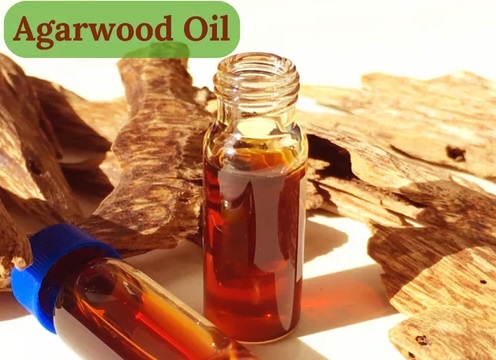Nikhil Prasad Fact checked by:Thailand Medical News Team Feb 16, 2025 1 month, 3 weeks, 4 days, 3 hours, 15 minutes ago
Thailand Mental Health News: A Traditional Remedy with Modern Potential
Agarwood, a fragrant wood used in traditional medicine for centuries, may hold the key to a natural remedy for depression, according to a new study conducted by researchers from the Chinese Academy of Medical Sciences and Peking Union Medical College in China, along with the University of Oxford in the UK. The research explored the antidepressant effects of agarwood essential oil (AEO) and its ability to reduce inflammation in the brain while promoting neuroprotective mechanisms.
 Agarwood Essential Oil Shows Potential as a Natural Remedy for Depression
Agarwood Essential Oil Shows Potential as a Natural Remedy for Depression
Depression is one of the most common mental health disorders, affecting millions of people worldwide. While conventional antidepressants exist, they can have side effects and do not work for everyone. As a result, researchers are increasingly looking at natural substances with potential mood-enhancing benefits. This
Thailand Mental Health News report delves into the study's findings on how AEO can influence brain chemistry and help alleviate depression-like symptoms.
Testing Agarwood Oil on Mice
To investigate the potential benefits of AEO, scientists used a well-established mouse model of depression, where inflammation is induced to mimic the biological processes linked to depression in humans. The study tested two methods of administering AEO: inhalation and injection. Researchers measured behavioral changes in the mice, focusing on their mobility levels in tests that assess depressive-like behavior.
The results were promising. Mice that received AEO showed a significant reduction in immobility, indicating improved mood and reduced depressive symptoms. Additionally, the essential oil lowered levels of inflammatory markers in the brain, such as interleukin-1 beta (IL-1β), interleukin-6 (IL-6), and tumor necrosis factor-alpha (TNF-α). These inflammatory markers are often elevated in people with depression, suggesting that AEO may work by reducing neuroinflammation.
A Closer Look at How It Works
Scientists also examined the molecular pathways affected by AEO. They found that the oil suppressed the NF-κB/IκB-α signaling pathway, which is linked to inflammation in the brain. Additionally, AEO activated the BDNF/TrkB/CREB signaling pathway, which plays a crucial role in neuroprotection and brain plasticity.
BDNF (Brain-Derived Neurotrophic Factor) is an important protein that supports the survival and growth of neurons. Low BDNF levels are often associated with depression, and many conventional antidepressants work by increasing BDNF activity. The fact that AEO could naturally enhance this pathway suggests it has real potential as a treatment for depression.
Comparing Different Extraction Methods
The study also compared two types of agarwood essential oil: one extracted through hydrodistillation (SAEO) and another obtained through supercritical CO2 fluid extraction (CAEO).
Interestingly, the SAEO method produced a more effective oil in terms of its antidepressant effects. This difference may be due to variations in the chemical composition of the oils, with SAEO containing higher levels of sesquiterpene compounds, which have been linked to anti-inflammatory and neuroprotective effects.
The Future of Agarwood Oil in Mental Health Treatment
The findings suggest that agarwood essential oil could be a valuable natural alternative for managing depression. However, more research is needed to determine its effectiveness in humans. Future studies will need to identify the exact active compounds responsible for these effects and test their impact in clinical settings.
The study authors also emphasize the importance of further research to refine dosage recommendations and ensure safety. While agarwood has been used traditionally for its calming and mood-enhancing properties, scientific validation through human trials is the next crucial step.
Conclusion
Agarwood essential oil shows significant potential as a natural antidepressant, with effects linked to its ability to reduce inflammation and promote neuroprotective pathways in the brain. The study highlights the differences in oil extraction methods, with hydrodistillation appearing to yield the most potent antidepressant effects. While these results are promising, more research is needed to confirm its benefits for human mental health.
The study findings were published in the peer-reviewed journal: Pharmaceuticals.
https://www.mdpi.com/1424-8247/18/2/255
For the latest
Thailand Mental Health News, keep on logging to Thailand Medical News.
Read Also:
https://www.thailandmedical.news/news/study-finds-new-link-between-sugar-metabolism-and-stress-related-depression
https://www.thailandmedical.news/news/understanding-the-risk-of-suicidal-thoughts-in-adolescents-taking-serotonin-reuptake-inhibitors
https://www.thailandmedical.news/news/covid-19-negatively-affects-the-emotional-development-and-neuropsychological-function-of-children
https://www.thailandmedical.news/news/mental-health-new-study-provides-insights-into-delayed-bipolar-onset-in-teens-with-depression
